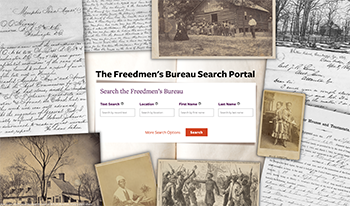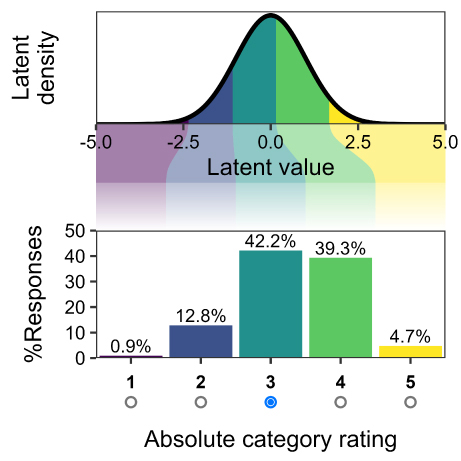
The National Museum of African American History and Culture’s Freedmen’s Bureau Project is a comprehensive initiative that has provided digital access to the Freedmen’s Bureau records. Previously, this important collection could only be accessed in person through the National Archives and Records Administration, with no way to search for specific people or topics. Smithsonian staff have worked with the public to index and transcribe the records to provide free full-text access to these invaluable records. To date over 600,000 pages of Freedmen’s Bureau records have been collaboratively transcribed by more than 60,000 individual volunteers. This data has been made available to the public for research in the Freedmen’s Bureau Search Portal. This groundbreaking search application is the result of more than a decade of data creation, processing, and cleaning; transcription; community engagement; and historical and genealogical research. The work of Smithsonian staff is ongoing and emerging technologies present exciting opportunities to expand access and continue to enable meaningful discoveries.

Evaluating perceptual image and video quality is crucial for multimedia technology development. This study investigated nation-based differences in quality assessment using three large-scale crowdsourced datasets (KonIQ-10k, KADID-10k, NIVD), analyzing responses from diverse countries including the US, Japan, India, Brazil, Venezuela, Russia, and Serbia. We hypothesized that cultural factors influence how observers interpret and apply rating scales like the Absolute Category Rating (ACR) and Degradation Category Rating (DCR). Our advanced statistical models, employing both frequentist and Bayesian approaches, incorporated country-specific components such as variable thresholds for rating categories and lapse rates to account for unintended errors. Our analysis revealed significant cross-cultural variations in rating behavior, particularly regarding extreme response styles. Notably, US observers showed a 35–39% higher propensity for extreme ratings compared to Japanese observers when evaluating the same video stimuli, aligning with established research on cultural differences in response styles. Furthermore, we identified distinct patterns in threshold placement for rating categories across nationalities, indicating culturally influenced variations in scale interpretation. These findings contribute to a more comprehensive understanding of image quality in a global context and have important implications for quality assessment dataset design, offering new opportunities to investigate cultural differences difficult to capture in laboratory environments.

People are participating in the digital environment more than ever before and have gotten used to sharing their lives and expertise through social networks. There is a great potential in users sharing private archival materials and their knowledge digitally, but they need adequate guidance. At the same time, the archival sector is struggling to process the fast-growing amount of digital material. Reception and its processes are slowed down by insufficient technological development and lack of resources. What is needed to obtain valuable private archives and enriching metadata from the users, but not increase the workload of archival organizations? In this paper, we are introducing Memoriaali, an easy-to-use platform that provides tools for archival donors and professionals.